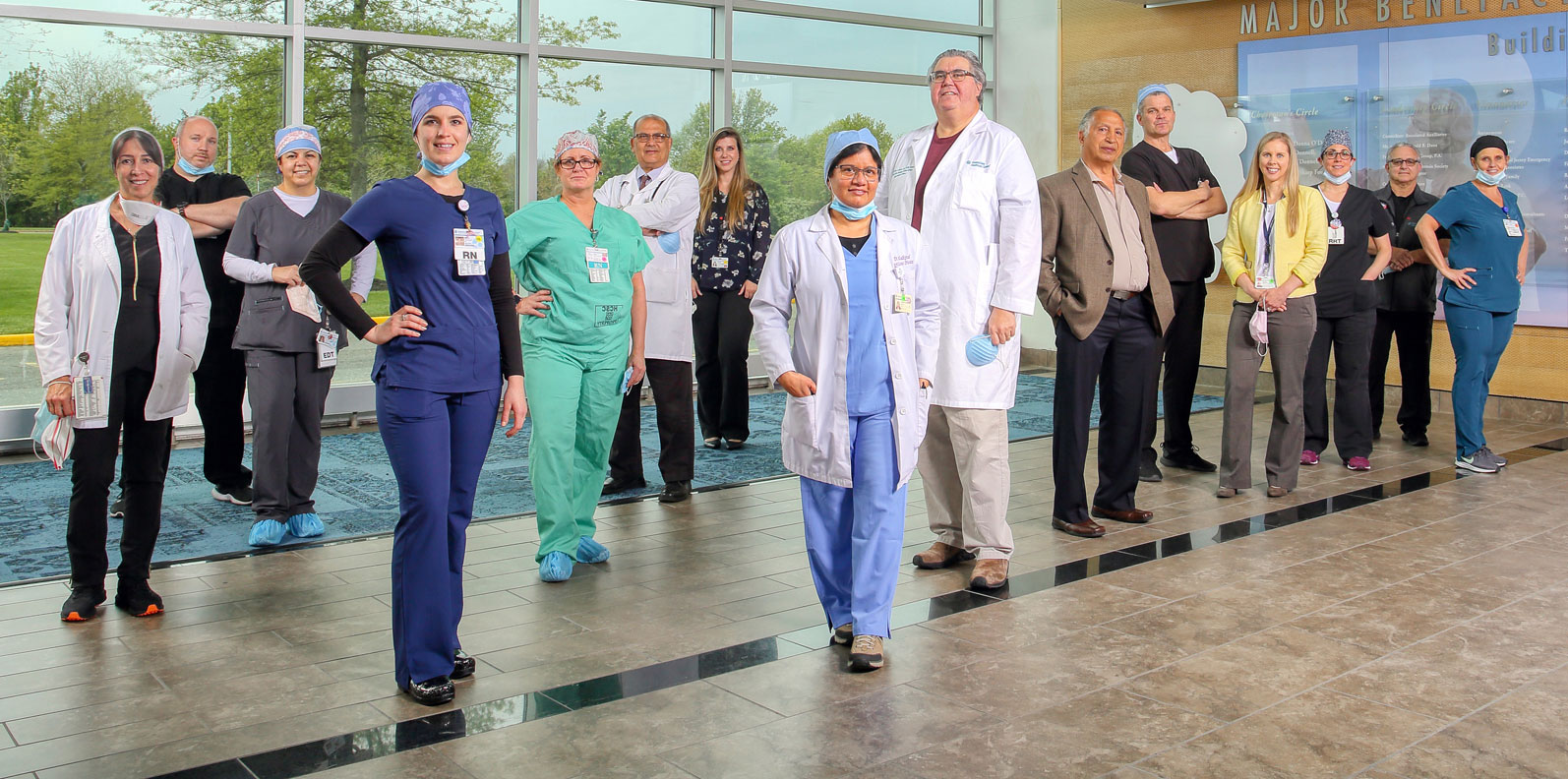Early on in the COVID-19 crisis, CentraState chief medical officer James Matera, DO, recognized that treating patients with COVID-19 required new parameters for care. To handle the influx of patients, he worked with physician leaders to quickly mobilize a COVID-19 Response Team dedicated solely to treating patients with the disease.
“COVID-19 was such a new disease that while we were preparing for how to handle it, we were hit with a cluster of cases,” says infectious disease physician and COVID-19 team member Ramanasri Kudipudi, MD. “Our goal was to limit the number of providers who had to enter each room while still delivering effective care based on the latest evolving data. We brainstormed creative ways to evaluate and treat patients and protect our care providers.”
“In a normal situation, we’d have years of data to analyze to develop a treatment plan,” adds CentraState ICU director Nirav N. Shah, DO. “With COVID-19, there were no guidelines; we were writing them as the admissions mounted. But medicine is at its best when everyone is on the same page. We all had the same job: to treat these patients as best we could under extraordinary circumstances.”
Developing Care Protocols
The multidisciplinary teams included primary care, infectious disease, pulmonary, and critical care physicians, along with residents, advanced practice nurses, respiratory therapists, medical staff leadership, and staff from the infection control, pharmacy, and care coordination/social work departments. Gleaning the best evidence possible from the rapidly changing information, the teams looked at risk factors, laboratory markers, and the clinical picture to make decisions. Each team was assigned to one specific area to limit exposure for clinicians, deliver more standardized care for patients, and preserve valuable PPE.
Physicians and other team members collaborated on physical findings, lab results, and treatment protocols. Whenever possible, only one nurse entered the patient room to handle patient care tasks. Baby monitors were used in adult rooms to help patients communicate their needs, and IV pumps were relocated outside rooms so nurses could adjust medications without needing PPE. The respiratory team also helped ensure the best protocols for safe interventions while working to prevent intubations and facilitate optimal outcomes for those who needed ventilator care.
“It was an emotional experience; we celebrated every single person who went out the door and deeply mourned everyone who didn’t,” says family medicine physician Philip Angello, MD, who worked three one-week shifts on the COVID team. “Being among other dedicated clinicians made the rough days much more tolerable because everyone shared the burden. The professionalism and commitment they showed was amazing, and I don’t think we would have gotten through it without that camaraderie.”
Unique Treatment Strategies
With no approved treatment protocol for the virus, treatment plans varied for each patient according to individual needs and the latest data. Some were approved to begin the FDA’s clinical trial of remdesivir, and some were treated with convalescent plasma through a partnership with the American Red Cross. With time, valuable strategies became more evident, including early proning, anticoagulation protocols, anti-inflammatory use, and tactics to prevent or delay intubations.
Together, the team treated more than 600 COVID-19 patients over four months. Each member brought compassion and clinical skills to those in need. This unique team approach made a difference in clinical outcomes, according to participants.
“When I was asked to join the response team, it was not a tough decision to make,” says internal medicine physician Nivedita Sharma, MD. “There were so many patients to treat. I asked myself, ‘If not me, then who? If not now, then when?’ The hours were long and the work was difficult, but as long as patients kept coming in, we kept up our pace. We got strength and vitality from each other and the community.”
“If our teams are confronted with something of this magnitude again, we know that we will rise to the challenge,” says Dr. Matera. “This experience will dramatically change how we deliver care—and how we live our lives.”

